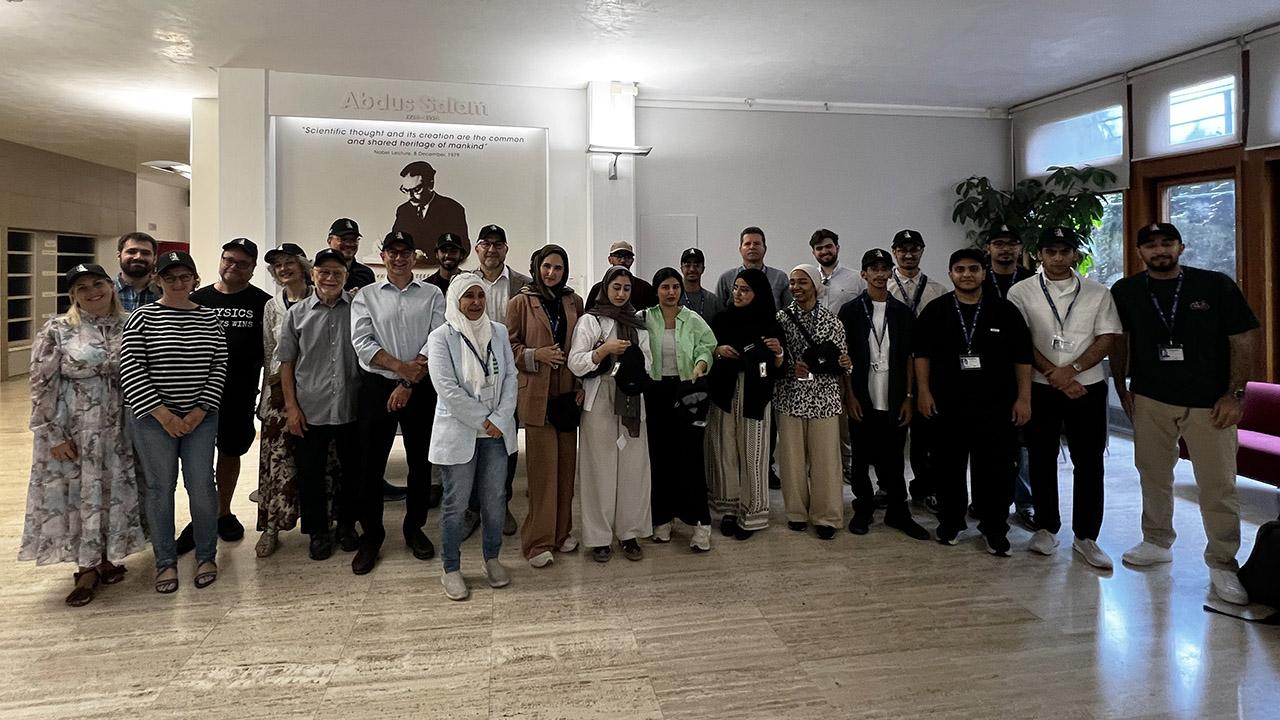
Scientists at all career stages regularly visit ICTP for advanced scientific training that will help them answer complex research questions. In a new collaboration with the King Abdullah University of Science and Technology (KAUST), Saudi Arabia, ICTP's Science, Technology and Innovation (STI) unit recently hosted 18 university students to work on applied research and enhance their training experience over the summer.
The students were given the opportunity to work primarily in one of ICTP’s three laboratories: the Marconi Lab, the Multidisciplinary Laboratory (MLab), and the Scientific Fabrication Laboratory (SciFabLab). Individually or in small groups of two or three, the students worked on applied projects involving optics, data analysis, machine learning, advanced scientific instrumentation, and 3D printing, as well as on more theoretical explorations in collaboration with ICTP’s Condensed Matter and Statistical Physics section.
Projects ranged from building a digital holography microscope for biomedical applications using AI, to estimating CO2 emissions from cars based on sound alone. Others included 3D printing mathematical objects and using Tiny Machine Learning (tinyML) to classify mosquitoes and identify those that carry diseases.
The collaboration between ICTP and KAUST was initiated by Sultan Albarakati, director of the KAUST Academy and Marco Zennaro, head of the STI unit. “Our connection began when we partnered to run TinyML workshops for KAUST Academy students,” says Albarakati, adding, “The experience was eye-opening for many of them, it showed what’s possible when rigorous science meets accessibility and a real commitment to global collaboration. So when we began designing a deeper summer experience for our top students, ICTP immediately came to mind.”
During their two months at ICTP, KAUST students explored a new environment and way of life. “This program is designed to be more than just academic,” Albarakati comments. “We hope the students not only sharpen their technical skills, but also gain confidence working in international lab settings, collaborating with diverse researchers, and learning from ICTP’s culture of curiosity and openness. This complements their KAUST education beautifully, giving them a broader perspective on research, innovation, and global responsibility,” he explains.
“My personal hope is that the students embrace every part of this journey, from the technical challenges in the lab to the cultural conversations over coffee,” says Albarakati. “Trieste is a city full of scientific history and international energy, and ICTP is a place where young people can truly see what’s possible,” he continues, adding, “I hope they come back not only with a final report and new skills, but with stories, friendships, and a stronger sense of how they can contribute to the global scientific community. And I hope it inspires them to keep asking questions and to keep reaching further.”
To learn more about the projects developed by the students, listen to ICTP researchers Serafina Di Gioia, Carlo Fonda, Romina Molina, and Rytis Paškauskas, who supervised the students during their stay, as they reflect on their own and the students’ experience in this video:
















